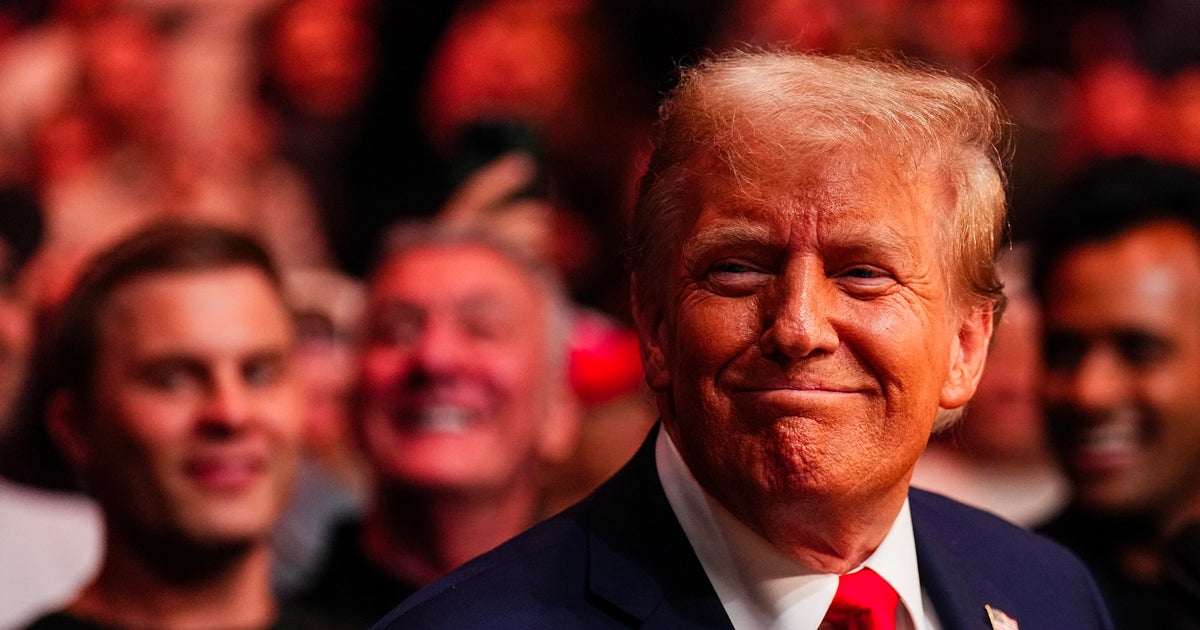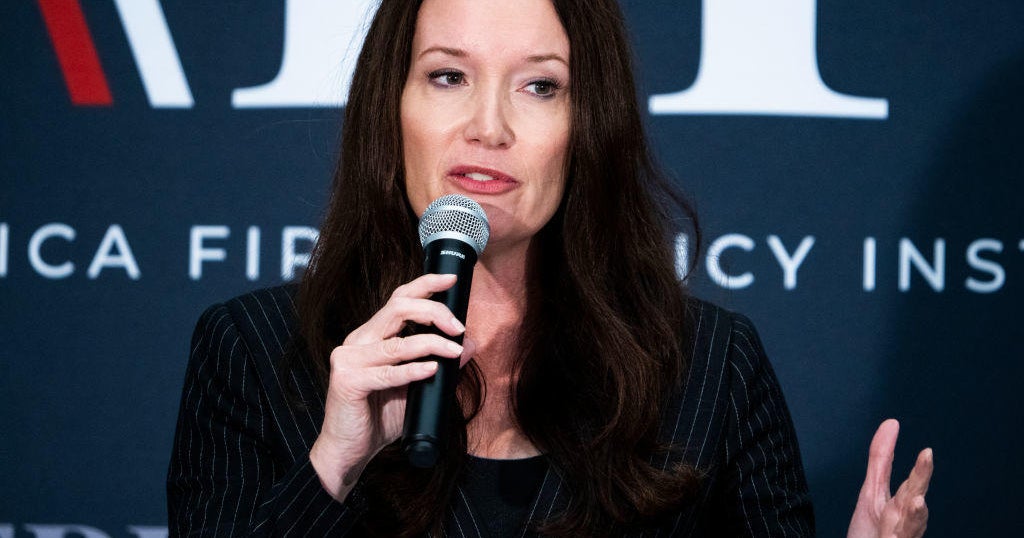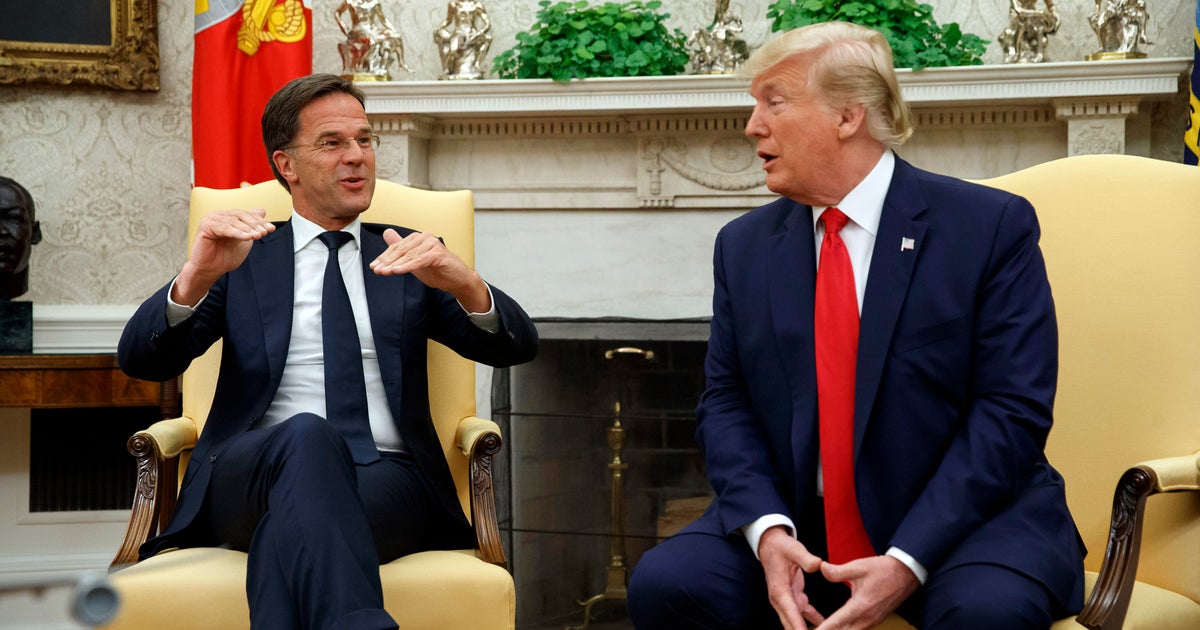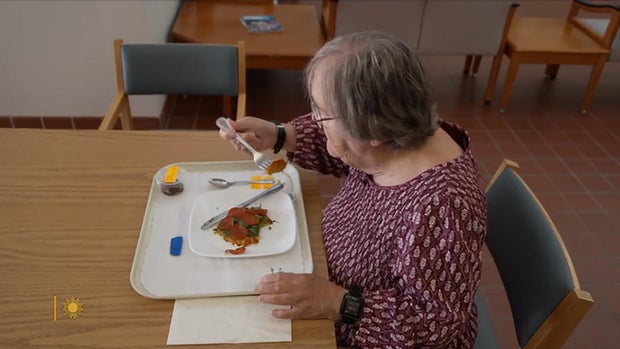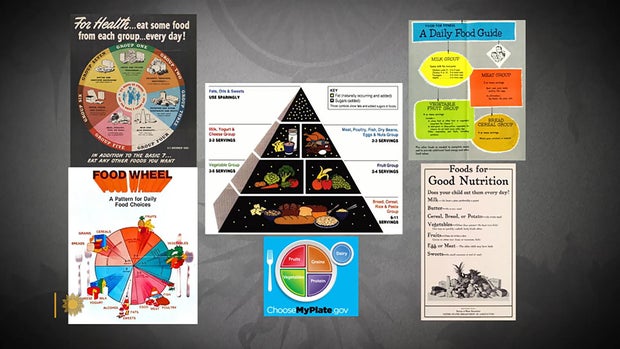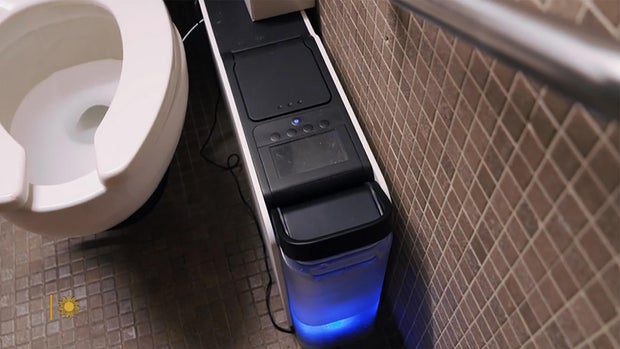CBS News
RNC Chair Ronna McDaniel told Trump she’d resign as chair

Republican National Committee Chairwoman Ronna McDaniel told former President Donald Trump during a meeting at Mar-a-Lago Monday that she would step down from her role in the party, a GOP source told CBS News.
McDaniel told Trump that she’s a “team player” and will do what’s in the best interest of the party. Trump and McDaniel plan to discuss her future after the South Carolina primary on Feb. 24.
After the meeting, Trump wrote on his social media platform Truth Social that he would “be making a decision the day after the South Carolina Primary as to my recommendations for RNC Growth.”
Justin Sullivan / Getty Images
“Nothing has changed. This will be decided after South Carolina,” RNC spokesperson Keith Schipper told CBS News in a statement Tuesday night.
The news, first reported by the The New York Times, comes with increased calls from within the Republican party for McDaniel to step down. She has been chairwoman of the RNC since 2017 and had just won a fourth term as chair in January.
But in 2023, the RNC had its worst fundraising year in a decade, and it entered 2024 with just $8 million in its coffers, its lowest cash on hand since 2014, according to FEC reports.
In January, a resolution was circulated within the RNC to name Trump the “presumptive nominee,” even with former U.N. Ambassador Nikki Haley still in the race, but the petition was later withdrawn.
If Trump were to win the GOP nomination, he would have access to the RNC’s data and ground operations, as well as its fundraising arm and legal fund. Last year, the former president’s legal bills added up to about $50 million, according to FEC reports.
In November, then-presidential candidate and Trump ally Vivek Ramaswamy called on McDaniel to step down at the Miami Republican primary debate, and he also launched a petition to oust McDaniel.
“There is a cancer in the Republican establishment,” Ramaswamy said, pointing at McDaniel from the debate stage.
Trump has also cast doubt on McDaniel’s future as chair twice this week in interviews.
“I think she did great when she ran Michigan for me. I think she did okay, initially. I would say right now there’ll probably be some changes made,” Trump said in an interview with Fox News’ Maria Bartiromo.
And in an interview Monday night with Newsmax, Trump was asked if it was time for McDaniel to step aside as chair.
“Well, I think she knows that. I think she understands that,” Trump said.
Musadiq Bidar and Shaan Sachdev contributed to this report.
CBS News
A study to devise nutritional guidance just for you

It’s been said the best meals come from the heart, not from a recipe book. But at this USDA kitchen, there’s no pinch of this, dash of that, no dollops or smidgens of anything. Here, nutritionists in white coats painstakingly measure every single ingredient, down to the tenth of a gram.
Sheryn Stover is expected to eat every crumb of her pizza; any tiny morsels she does miss go back to the kitchen, where they’re scrutinized like evidence of some dietary crime.
Stover (or participant #8180, as she’s known) is one of some 10,000 volunteers enrolled in a $170 million nutrition study run by the National Institutes of Health. “At 78, not many people get to do studies that are going to affect a great amount of people, and I thought this was a great opportunity to do that,” she said.
CBS News
It’s called the Nutrition for Precision Health Study. “When I tell people about the study, the reaction usually is, ‘Oh, that’s so cool, can I do it?'” said coordinator Holly Nicastro.
She explained just what “precise” precisely means: “Precision nutrition means tailoring nutrition or dietary guidance to the individual.”
The government has long offered guidelines to help us eat better. In the 1940s we had the “Basic 7.” In the ’50s, the “Basic 4.” We’ve had the “Food Wheel,” the “Food Pyramid,” and currently, “My Plate.”
CBS News
They’re all well-intentioned, except they’re all based on averages – what works best for most people, most of the time. But according to Nicastro, there is no one best way to eat. “We know from virtually every nutrition study ever conducted, we have inner individual variability,” she said. “That means we have some people that are going to respond, and some people that aren’t. There’s no one-size-fits-all.”
The study’s participants, like Stover, are all being drawn from another NIH study program called All Of Us, a massive undertaking to create a database of at least a million people who are volunteering everything from their electronic health records to their DNA. It was from that All of Us research that Stover discovered she has the gene that makes some foods taste bitter, which could explain why she ate more of one kind of food than another.
Professor Sai Das, who oversees the study at Tufts University, says the goal of precision nutrition is to drill down even deeper into those individual differences. “We’re moving away from just saying everybody go do this, to being able to say, ‘Okay, if you have X, Y and Z characteristics, then you’re more likely to respond to a diet, and somebody else that has A, B and C characteristics will be responding to the diet differently,'” Das said.
It’s a big commitment for Stover, who is one of 150 people being paid to live at a handful of test sites around the country for six weeks – two weeks at a time. It’s so precise she can’t even go for a walk without a dietary chaperone. “Well, you could stop and buy candy … God forbid, you can’t do that!” she laughed.
While she’s here, everything from her resting metabolic rate, her body fat percentage, her bone mineral content, even the microbes in her gut (digested by a machine that essentially is a smart toilet paper reading device) are being analyzed for how hers may differ from someone else’s.
Nicastro said, “We really think that what’s going on in your poop is going to tell us a lot of information about your health and how you respond to food.”
CBS News
Stover says she doesn’t mind, except for the odd sounds the machine makes. While she is a live-in participant, thousands of others are participating from their homes, where electronic wearables track all kinds of health data, including special glasses that record everything they eat, activated when someone starts chewing. Artificial intelligence can then be used to determine not only which foods the person is eating, but how many calories are consumed.
This study is expected to be wrapped up by 2027, and because of it, we may indeed know not only to eat more fruits and vegetables, but what combination of foods is really best for us. The question that even Holly Nicastro can’t answer is, will we listen? “You can lead a horse to water; you can’t make them drink,” she said. “We can tailor the interventions all day. But one hypothesis I have is that if the guidance is tailored to the individual, it’s going to make that individual more likely to follow it, because this is for me, this was designed for me.”
For more info:
Story produced by Mark Hudspeth. Editor: Ed Givnish.
“Sunday Morning” 2024 “Food Issue” recipe index
Delicious menu suggestions from top chefs, cookbook authors, food writers, restaurateurs, and the editors of Food & Wine magazine.
CBS News
A new generation of shopping cart, with GPS and AI

Watch CBS News
Be the first to know
Get browser notifications for breaking news, live events, and exclusive reporting.
CBS News
“All hands on deck” for Idaho’s annual potato harvest

Watch CBS News
Be the first to know
Get browser notifications for breaking news, live events, and exclusive reporting.




